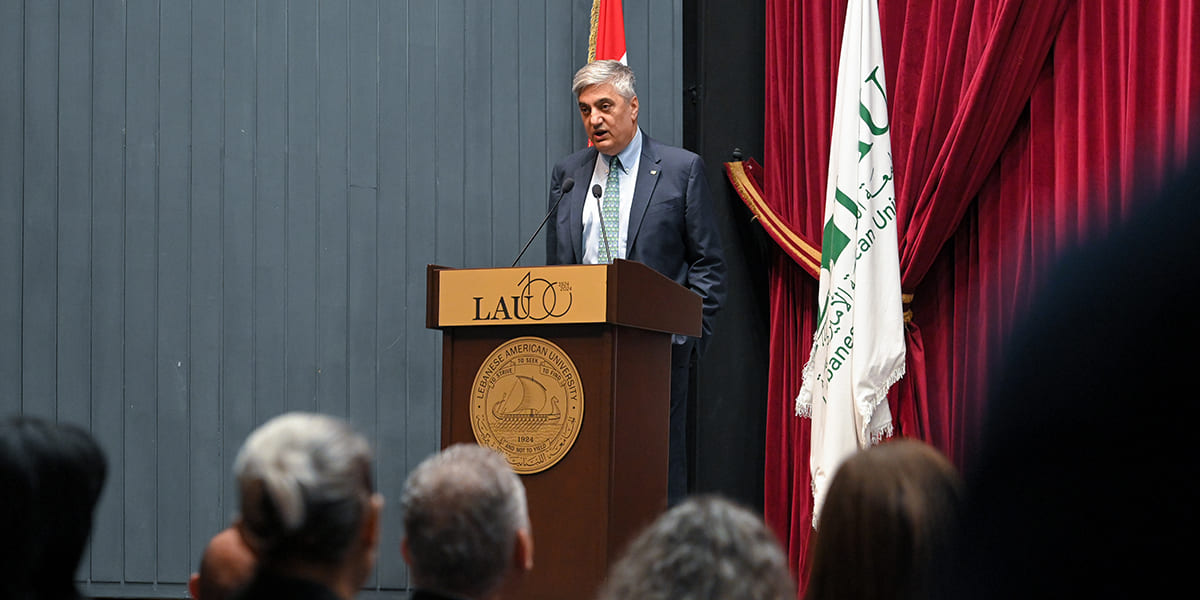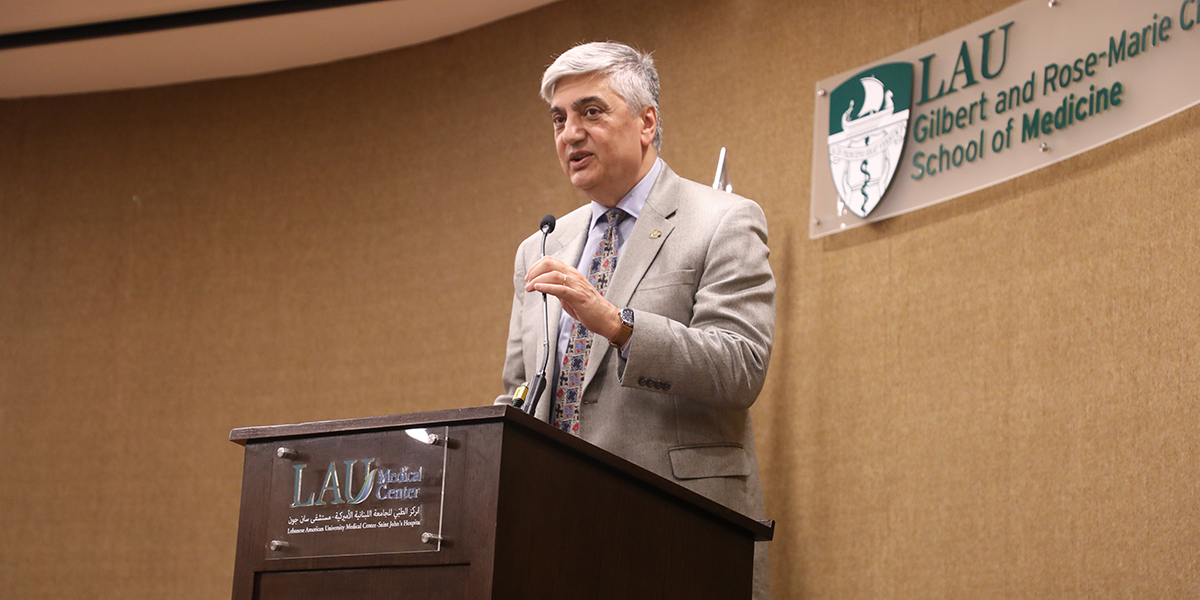President Abdallah Hosts Town Halls to Connect With the LAU Community
Dr. Chaouki T. Abdallah has been swift in mobilizing LAU’s institutions to address the community’s concerns while outlining his evolving short- and long-term strategic plans for the university and its entities.
For LAU’s tenth president, Dr. Chaouki T. Abdallah, stepping into the university’s leadership during one of the country’s most turbulent periods felt less like a decision and more like a calling—a calling to contribute to a consequential institution dedicated to shaping well-rounded leaders and supporting medical centers committed to healing with compassion.
Just two months into his presidency, Dr. Abdallah connected with the LAU community through a series of town hall meetings—both in-person and online—held across the Beirut, Byblos and New York campuses, as well as the medical centers in Beirut and Jounieh.
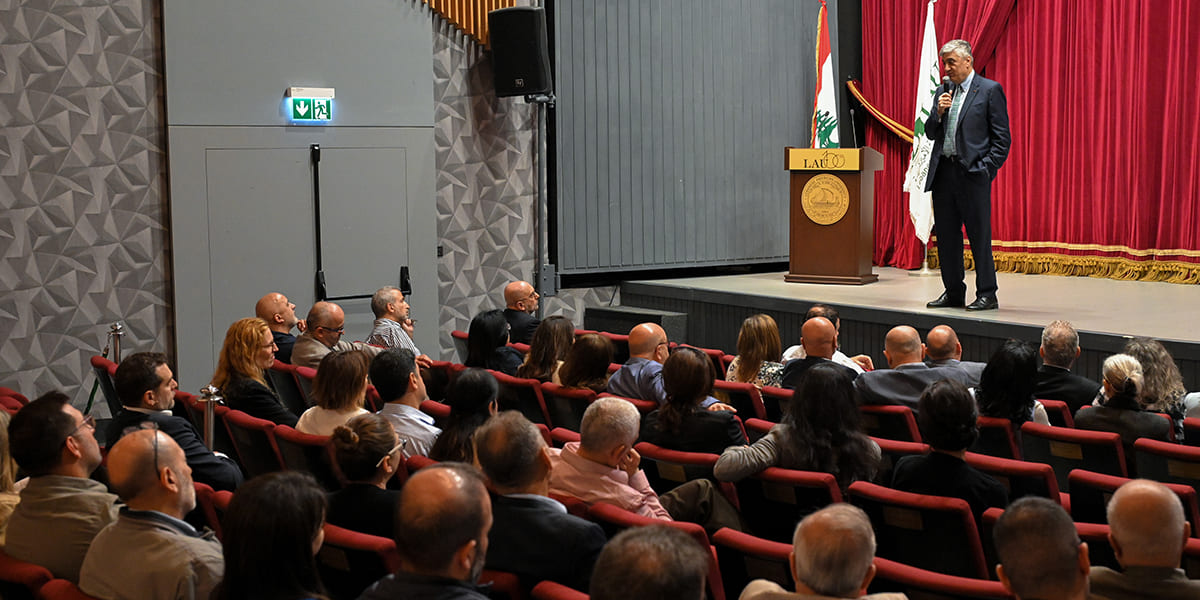
Speaking to staff and faculty, he candidly shared the personal and professional journey that led him back to Lebanon last October while presenting his overarching strategic plans for the university and its affiliates.
Through these meetings, he provided a platform for members of the LAU community and stakeholders to voice their concerns. He expounded on three paramount pillars: streamlining operations, diversifying revenue and fostering entrepreneurship, all of which are underpinned by the people who must be appreciated and supported, he said.
“We need to revise our current financial model to ensure sustainability while staying aligned with and supporting our mission,” he explained. “This can only be achieved by diversifying our revenue sources, which are currently overly dependent on tuition.”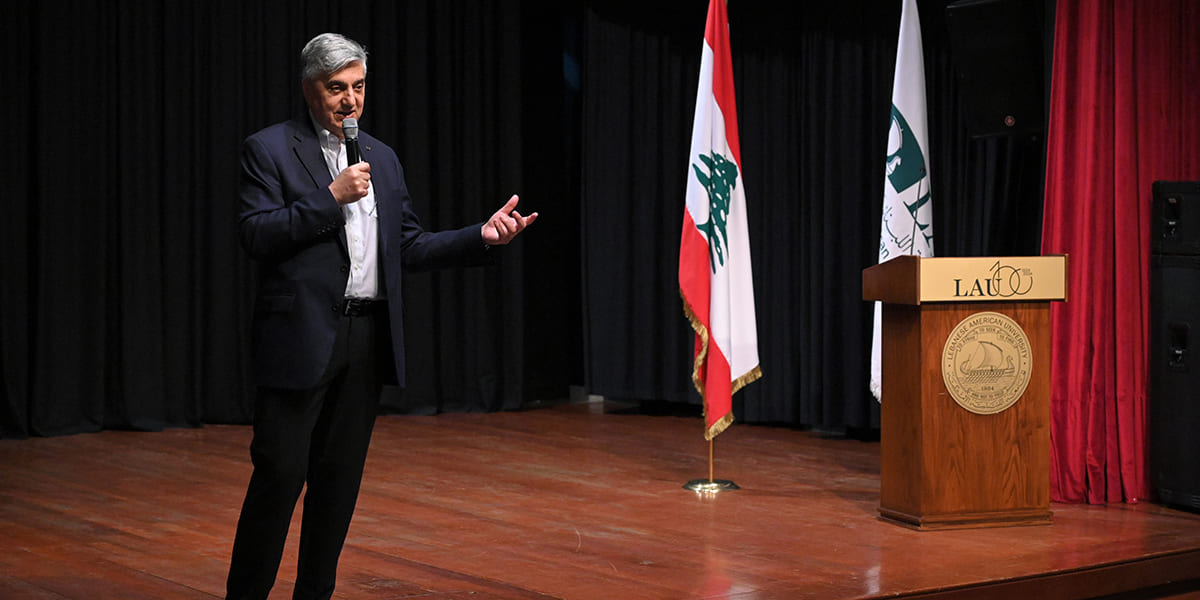
In addition to bolstering endowment, fundraising and research efforts to expand income streams, Dr. Abdallah emphasized the importance of enhancing operational efficiency within the institution to “free up resources to reinvest in the academic mission.”
When asked by one faculty member about the difficulty they are facing in increasing research output due to financial constraints, he drew on his experience at Georgia Tech and shared how a partnership with Emory University helped transform its biomedical engineering program into one of the leading programs in the US.
“This highlights the importance of partnering with the right institutions to gain access to resources that might otherwise be out of reach or prohibitively expensive if developed independently,” he said. “My role will be to identify these resources and facilitate your access to them.”
Across the sessions, Dr. Abdallah also talked about his vision for developing an entrepreneurial ecosystem for fresh graduates, encouraging them to invest in the country by launching local startups rather than seeking opportunities abroad.
As for the hospitals, and to meet their need for expansion, resources, and faculty attraction and retention, he reiterated the importance of a financial plan that ensures long-term stability and aligns with the university’s new shared strategic goal.”
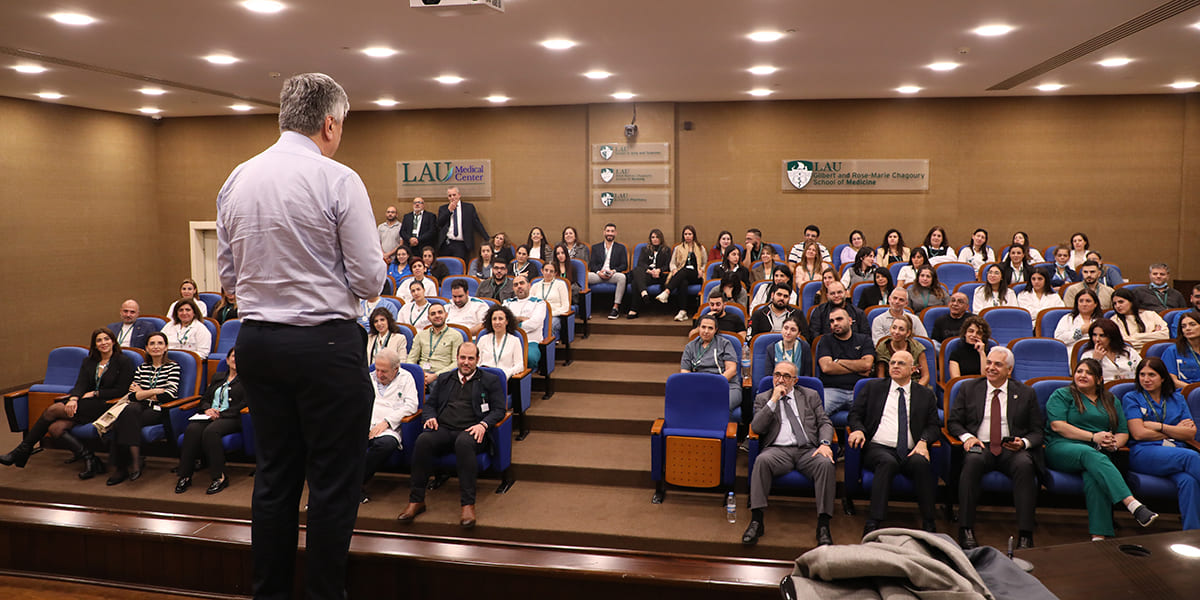
The plan can be achieved “through seamless coordination among the school of medicine, the hospitals and the university,” he said.
As an advocate for transparency and open communication, Dr. Abdallah encouraged staff and faculty to share their feedback and insights through the appropriate channels. He urged all entities to work together as a unified whole, guided by the university’s mission.
